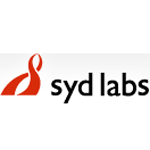ATXN2 Polyclonal Antibody
$250.00 – $350.00
Conditions of optimal ATXN2 polyclonal antibody performance should be determined experimentally by the investigator.
- Product Details
- Description
- Additional information
- More Offers
| Catalog No. | PA000858-C14578 |
|---|---|
| Product Name | ATXN2 Polyclonal Antibody |
| Supplier Name | Syd Labs, Inc. |
| Brand Name | Syd Labs |
| Synonyms | Ataxin-2; Spinocerebellar ataxia type 2 protein; Trinucleotide repeat-containing gene 13 protein |
| Isotype | Human IgG4 kappa. |
| Specificity/Sensitivity | ATXN2 antibody detects endogenous levels of total ATXN2 protein. |
| Reactivity | Human, Mouse. |
| Immunogen | The antiserum was produced against synthesized peptide derived from internal of human ATXN2. |
| Purification | The antibody was affinity-purified from rabbit antiserum by affinity-chromatography using epitope-specific immunogen. |
| Form Of Antibody | Rabbit IgG in phosphate buffered saline (without Mg2+ and Ca2+), pH 7.4, 150 mM NaCl, 0.02% sodium azide and 50% glycerol. |
| Stability & Storage | Stable for 1 year at -20°C and 3 months at 4°C. For maximum recovery of the product, centrifuge the original vial after thawing and before removing the cap. Aliquot to avoid repeated freezing and thawing. |
| Note | Conditions of optimal ATXN2 antibody performance should be determined experimentally by the investigator. |
| Order Offline | Syd Labs, Inc. 4 Avenue E, Hopkinton, MA 01748 USA. Phone: 1-617-401-8149 Fax: 1-617-606-5019 Email: message@sydlabs.com |
Description
PA000858-C14578: ATXN2 Polyclonal Antibody
Introduction
Ataxin-2 is a protein that in humans is encoded by the ATXN2 gene. Mutations in ATXN2 cause spinocerebellar ataxia type 2 (SCA2). The autosomal dominant cerebellar ataxias (ADCA) are a heterogeneous group of neurodegenerative disorders characterized by progressive degeneration of the cerebellum, brain stem and spinal cord. Clinically, ADCA has been divided into three groups: ADCA types I-III. ADCAI is genetically heterogeneous, with five genetic loci, designated spinocerebellar ataxia (SCA) 1, 2, 3, 4 and 6, being assigned to five different chromosomes. ADCAII, which always presents with retinal degeneration (SCA7), and ADCAIII often referred to as the `pure’ cerebellar syndrome (SCA5), are most likely homogeneous disorders. Several SCA genes have been cloned and shown to contain CAG repeats in their coding regions. SCA2 is caused by the expansion of a CAG repeat in the coding region of the ATXN2 gene producing an elongated polyglutamine tract in the corresponding protein. The expanded repeats are variable in size and unstable, usually increasing in size when transmitted to successive generations. The function of the ataxins is not known.
Other ATXN2 Antibody:
ATXN2 Polyclonal Antibody
Additional information
| Ship from Country | USA |
|---|---|
| Size | 100 ug, 50 ug |




